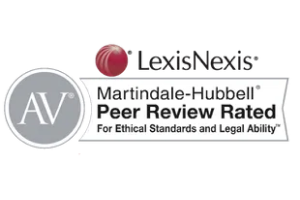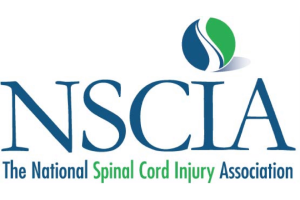Personal Injury
Atlanta Personal Injury Attorneys
The primary focus of Ragland Law Firm, LLC is personal injury litigation. We have represented hundreds of individuals who suffered personal injuries due to the negligent or criminal conduct of other individuals, corporations or governmental entities. View our Case Results page to learn more about some of the specific personal injury lawsuits which the attorneys at Ragland Law Firm, LLC have successfully handled in many cities throughout Georgia and the surrounding states. We are true personal injury specialists. We usually represent the plaintiff or injured party in any personal injury lawsuit. Because of our work for plaintiffs, we never represent or defend insurance companies.
Handling Personal Injury Litigation
Throughout Georgia and the Southeast
Our offices are located in Atlanta, but we handle personal injury cases in all areas of Georgia. We have filed and prosecuted personal injury lawsuits in many different Georgia cities including Gainesville, Rome, Dalton, Commerce, Winder, Athens, Toccoa, Covington, Augusta, Griffin, Peachtree City, Macon, Villa Rica, Carrollton, Newnan, LaGrange, Columbus, Statesboro, Savannah, and among many other locations. We have a state-wide practice, and we have the ability and resources to represent personal injury victims anywhere in the State of Georgia.
We have also handled personal injury cases throughout the Southeast including the states of Alabama, Florida, Tennessee and South Carolina. We often travel out of state to represent personal injury victims in neighboring states.
Personal Injury Statistics
Every year, thousands of people are injured or killed in this country because of drunk driving, defective products, contaminated food, medical malpractice and other negligent conduct. During the last few decades, much has been done to improve safety. Airbags have improved the crashworthiness of automobiles and many other technological advances involving many other products have reduced injuries. Many safety advocacy groups such as Mothers Against Drunk Driving have raised public awareness about drunk driving and various other dangerous activities. Legislation passed at the national and state levels has focused on various safety initiatives. Despite these laudable advances in technology, legislation and societal attitudes, the fact remains that negligent conduct in many settings leads to injury causing events involving thousands of American citizens.
Unfortunately, until it affects them or someone in their family, most people are not aware and cannot appreciate how frequently people suffer disabling injuries. However, the statistics are staggering. On an annual basis, more than 100,000 people are killed and ten times that may sustain severe injuries because of medical malpractice, defective products and various types of negligently caused accidents.
Common Causes of Personal Injury
There are many types of personal injury lawsuits because people get injured for many different reasons. Some of the most common causes of personal injury in this country include the following:
- traffic accidents involving cars, motorcycles, vans, etc.
- accidents caused by tractor trailers and other commercial vehicles
- bicyclists and pedestrians struck by motor vehicles
- accidents involving common carriers such as subways, trains, buses, shuttles or taxis
- contaminated or undercooked food leading to food poisoning or food-borne disease
- defective products and unsafe drugs
- medical malpractice
- accidents involving escalators and elevators
- falls due to spills or foreign substances on the floor of a restaurant, grocery or other commercial establishment
- falls due to unmarked steps or the disrepair of sidewalks, entrance ways or other walking surfaces
- dog bites and vicious animal attacks
- criminal assaults due to inadequate security.
The Nature and Scope of Personal Injury Claims
“Personal injury” claims or lawsuits are pursued by individuals who have suffered injury or damages as a result of the negligent or intentional conduct of another person, organization or entity. In most cases, a personal injury claim or lawsuit will involve a physical injury such as bone fracture, herniated or ruptured disc, torn ligament, laceration, paralysis, burn, amputation, or other type of bodily injury. However, personal injury cases can involve other types of non-physical harm such as damage to a person’s reputation, physiological trauma, severe emotional distress, violation of one’s civil rights or invasion of one’s right to privacy.
Any Person, Business, Corporation, Organization or Government Entity
Can Be the Subject of a Personal Injury Lawsuit in Georgia
Personal injury claims and lawsuits can be brought against any party whose wrongful conduct caused or contributed to the damages suffered by the victim. These are civil cases which can be pursued against a person, business, private corporation, club, organization, government agency, or any other type entity whose culpable actions or failures to act led to someone’s personal injury.
Personal Injury Victims in Georgia Must Prove Fault
The civil justice system in Georgia and in all states is based upon the concept of fault. Just because someone has been injured in an accident does not necessarily or automatically mean that another person or business is to blame or liable for that person’s damages. If the conduct of another person or business was not somehow wrongful, then that defendant cannot be held liable for the plaintiff’s injuries.
Four Elements of a Personal Injury Claim in Georgia
There are four elements to every personal injury case:
- duty,
- breach,
- causation, and
- harm.
Element One: The Legal Duty to Exercise Reasonable Care – To assert a personal injury claim, the law must first recognize that the defendant had a “duty” to act or refrain from acting in certain ways under a given set of circumstances. Legal duties can be established by legislative statutes or under the “common law” (ie. appellate court decisions). For example, under Georgia law, every motorist has a legal “duty” to follow the “rules of the road” and operate their motor vehicle in a reasonably safe manner. There are countless other situations where Georgia law recognizes the “duty” of a person or entity to follow certain rules or conduct themselves in a reasonably prudent and careful manner. In contrast, there are other situations where the law establishes that no “duty” exists. For example, in Georgia, a bystander has no legal “duty” to attempt to aid or rescue a stranger who is in need of help. Though one may believe there is a moral duty to help, Georgia law does not require it. Therefore, because there is no established legal duty requiring strangers to attempt to rescue each other, the first element of “duty” would be missing thereby causing the defeat of any personal injury lawsuit brought by an injured person against any bystander who failed to render aid. Interestingly, though, anyone who chooses to attempt a rescue is charged with a duty under Georgia law to perform such rescue in a non-negligent manner. Therefore, a claim can be asserted against an individual or entity if they acted negligently after the rescue efforts were initiated.
Element Two: Breach of the Duty of Reasonable Care – Next, any personal injury victim must prove that the defendant “breached” or failed to fulfill the “duty” established by a Georgia statute or Georgia common law. The “breach” can be any type of wrongful or tortious conduct which is contrary to the duty which the defendant owes to the plaintiff. Usually, personal injury cases involve allegations that the defendant breached the legal duty by acting negligently. In all states, including Georgia, the term “negligence” is generally defined as the failure to act with reasonable care under the circumstances. To allege that a person or entity acted negligently is to allege that they acted carelessly or in an unsafe manner. For all practical purposes the words careless, unsafe, or dangerous would be synonyms with the legal term “negligent.”
Element Three: The Defendant’s Breach Must Proximately Cause the Plaintiff’s Damages – Finally, every personal injury victim must establish that the defendant’s negligent or unlawful conduct actually caused or contributed to the injury for which compensation is sought. It is not enough to show that the defendant did something legally wrong or acted in an unsafe manner. The plaintiff must prove that what the defendant did or failed to do actually caused or contributed to causing the accident or event involving the plaintiff.
Element Four: The Plaintiff Must Suffer Compensable Injuries or Damages Manner – In every personal injury case, the plaintiff must prove that he actually suffered some injury that was caused by the negligent conduct of the defendant. Any damages claimed by the plaintiff must be shown to be a result of the accident or event allegedly caused by the defendant’s negligence and not by some other means.
Personal Injury Lawsuits in Georgia Can Be Based on Wrongful Acts
Which Are Negligent, Intentional, Unlawful or Criminal
Importantly, personal injury cases are not limited to situations where the defendant’s conduct was negligent. Intentional, reckless, unlawful, illegal and criminal conduct can also potentially give rise to civil claims and lawsuits for personal injury. Thus, if someone is the victim of another person’s illegal behavior or intentional acts of violence, he can bring a civil personal injury claim or lawsuit against that defendant. That is why offenders are sometimes subject to both criminal prosecutions by the state, as well as civil personal injury lawsuits filed by the victims.
Comparing and Contrasting Claims or Personal Injury
vs. Wrongful Death in Georgia
Personal injury actions involve situations where someone has suffered injuries which do not cause or do not immediately cause the death of the injured party. In otherwords, for a personal injury claim to arise, the injured party must survive or survive some albeit short, length of time during which he either suffers pain or incurs actual damages such as medical expenses. A wrongful death claim will exist any time a person is killed due to another party’s negligent or reckless conduct. It matters not whether the death occurred instantly or after some period of time. Provided a person dies as a result of injuries caused by another party’s negligent or unlawful conduct, a wrongful death claim will arise upon the death of the accident victim. Click and read more about Wrongful Death Claims in Georgia.
In most ways, personal injury and wrongful death claims are quite similar. In each, the plaintiff must prove that the defendant’s negligent or unlawful conduct proximately caused an accident or other event which led to the plaintiff’s injury or death of the plaintiff’s family member. The procedural rules governing the preparation, filing and service of a personal injury and wrongful death lawsuit are nearly indentical. Once filed, the rules of pretrial discovery are the same. The jury trial of a personal injury action and a wrongful death case will be conducted in a similar way, and the same rules of evidence will apply to each. However, there are important differences between a personal injury and wrongful death claim. The key differences between these two distinct types of cases are these:
- A claim for personal injury is mostly governed by the common law, whereas wrongful death is based solely upon a statute.
- A claim for personal injury must be pursued by the injured party (or by a parent or guardian in the case of a minor child or incapacitated adult), whereas a claim for wrongful death must be pursued by the decedent’s spouse, children or parent (in that order of priority) as specified by the Georgia Wrongful Death Act.
Defenses to Personal Injury Claim Under Georgia Law
Georgia law provides for numerous legal defenses which can be raised in a personal injury case. Whether any particular defense is applicable to a given case is determined by the unique set of facts and circumstances which are presented. In otherwords, none, some or all of the possible defenses will be available depending upon what type of case is involved and the facts surrounding that case. As to any legal defenses raised by the defendant in a personal injury case, the burden of proving the elements of that defense will rest with the defendant. Some of the primary defenses which are sometimes asserted in personal injury lawsuits are:
- contributory or comparative negligence
- assumption of the risk
- governmental immunity (sovereign and official immunity)
- interspousal immunity/intra-family immunity
- good samaritan doctrine
Read more about these legal defenses.
Statute of Limitations for Personal Injury Claims in Georgia
All states, including Georgia, have “statutes of limitations” which govern how long an injured person has to file a lawsuit against the individual, business or government whose negligent or unlawful conduct caused the injury suffered by that person. All persons injured by the negligence of another person or entity must be aware that there is an applicable statute of limitation that requires the filing of a lawsuit within a certain period of time. If the injured party does not file his or her lawsuit by the applicable deadline, then the case will be legally barred by the statute of limitation.
Determining what statute of limitation applies to a given case can be a difficult legal issue. Every state, including Georgia, has its own unique set of statutes of limitation which apply to various types of personal injury cases. Thus, as to a given type of case, the applicable statute of limitation in Georgia may be different than the one which would apply in Florida, which may be different than the statute of limitation which might apply in Tennessee and so forth.
Personal Injury Cases Involving Minors in Georgia
Personal injury lawsuits may be pursued on behalf of children injured in Georgia. Usually, lawsuits involving injuries suffered by minors are filed by and in the name of one or both parents, or by the legal guardian of the minor.
Damages Recoverable in a Georgia Personal Injury Lawsuit
In every personal injury action, the victim may attempt to recover “compensatory” damages. Compensatory damages take two forms in a personal injury case: special and general damages. “Special” damages are the pecuniary losses suffered by the victim such as the cost of all medical care (past and future), the loss of wages/income (past and future), lost business profits, etc. To be recovered, the actual amount of the special damages incurred must be proven and any anticipated future damages must be shown by a reasonably certain pecuniary estimate. That is, the injured party must document precisely what amount of medical expenses and lost wages he has incurred as of a certain date, and he must provide evidence upon which a jury can reasonably estimate what medical costs or lost earnings will be incurred in the future.
On the other hand, “general” damages are not subject to any type of pecuniary calculation or estimate. General damages are awarded not as reimbursement for a past or anticipated expense or pecuniary loss, but as compensation for non economic damages such as past and future pain and suffering, past and future emotional distress, disfigurement of one’s body, or a disability which diminishes a person’s capacity to earn a living or otherwise enjoy certain types of activities. The amount of general damages to be awarded is left to the discretion of the jury. The law recognizes that the monetary value to be placed upon damages such as physical pain or disfigurement is a completely subjective concept which is not susceptible to precise calculation. Therefore, jurors will be instructed to use their “enlightened conscience” to decide what amount of money should be awarded.
A Spouse’s Claim for Loss of Consortium Under Georgia
Georgia law recognizes claims for “Loss of Consortium” by the spouse of an injured party.
Recovering Punitive Damages in a Georgia Personal Injury Case
In certain instances, Georgia law will allow an injured party to seek an award of “punitive damages” in addition to compensatory damages. Punitive damages are not given to compensate a plaintiff for his or her injury. Instead, the purpose of punitive damages is two fold: (1) to punish the defendant for his egregious conduct, and (2) to deter that defendant and all other persons from repeating such dangerous behavior.
Punitive damages are not allowed in all personal injury cases. They are only allowed where the defendant intended to cause injury, or his actions were so dangerous that an injury was likely to occur. In Georgia, the exact legal standard for awarding punitive damages is set out by statute in O.C.G.A. § 51-12-5.1(b) which states as follows:
Punitive damages may be awarded only in such tort actions in which it is proven by clear and convincing evidence that the defendant’s actions showed willful misconduct, malice, fraud, wantonness, oppression, or that entire want of care which would raise the presumption of conscious indifference to consequences.
Georgia’s punitive damage statute places a cap of $250,000 on any punitive damage award. O.C.G.A. § 51-12-5.1(g). However, there are three stated exceptions where the awarding of punitive damages would not be subject to this $250,000 limit. These three exceptions to the $250,000 punitive damage cap are as follows:
- cases involving claims of product liability [O.C.G.A. § 51-12-5.1(e)];
- cases where the “defendant acted, or failed to act, with the specific intent to cause harm” to the plaintiff [O.C.G.A. § 51-12-5.1(f)]; and
- cases where the “defendant acted or failed to act while under the influence of alcohol, drugs other than lawfully prescribed drugs administered in accordance with prescription, or any intentionally consumed glue, aerosol, or other toxic vapor to the degree that his or her judgment is substantially impaired.” [O.C.G.A. § 51-12-5.1(f)].
The Types of “Intentional Torts” Recognized Under Georgia Law
Most personal injury lawsuits involve bodily injuries suffered by the plaintiff due to an unsafe product, medical malpractice, a car or truck accident, or some other type of injury causing event. However, there are many types of personal injury cases which involve wrongful conduct by the defendant which is intentional rather than merely negligent, and many of these cases involve harm to the plaintiff which does not include a bodily injury. Instead, the damages might entail a financial loss, injured reputation, public humiliation or ridicule, deprivation of liberty, violation of civil rights, or invasion of privacy. Most states, including Georgia, recognize various causes of action which aggrieved parties can assert against the person or business which intentionally caused them to suffer a bodily injury or some other non physical harm. Lawyers generally refer to these as “Intentional Torts.” Under Georgia law, there are numerous different types of “Intentional Torts” which include the following:
- assault and battery
- defamation (i.e. libel, slander)
- false arrest/malicious prosecution
- false imprisonment
- sexual harassment
- invasion of privacy
- intentional infliction of emotional distress
- spoliation of evidence.
Contact an Atlanta Personal Injury Lawyer
If you or a family member have been injured or harmed by a dangerous product, or by the negligent or intentional conduct of another person or business, please contact us to discuss your potential case. The trial attorneys at Ragland Law Firm, LLC have over 35 years of combined experience representing personal injury victims in Georgia, Alabama, Florida, South Carolina and Tennessee.









